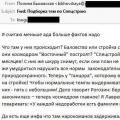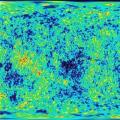Analytical report on the results of the work done
on organizing work with personnel in accordance
with the requirements of the professional standard of a teacher.
We live in a rapidly changing world. Modern children are fluent in modern technologies. They have other interests. Pedagogical activities in modern schools need modernization. In addition, science and technology are developing. The teacher must be ready for change. Mobility, the ability to perform non-standard work actions, responsibility and independence in decision-making - every teacher should strive for this.
The professional standard focuses on the ability to communicate with children while recognizing their dignity; the ability to protect those who are not accepted in the children's team; willingness to work with children, regardless of their abilities, mental and physical health, and even respect for the different cultures and languages of students of other nationalities.
Teachers of the Municipal Educational Institution Ust-Ordynskaya Secondary School No. 2 fulfill many of the provisions of the standard: they know their subject, are able to develop work programs, are able to conduct lessons and perform self-analysis, are proficient in ICT technologies, are able to objectively assess students’ knowledge, and use various forms of control. There are no problems with the use of special approaches to teaching in order to include all students in the educational process: with special educational needs; gifted students; students with disabilities, etc.
Teachers from Municipal Educational Institution Secondary School No. 2 carefully studied the professional standard and determined what gaps in competencies exist. And depending on this, a professional development plan was drawn up. We believe that a teacher cannot handle many issues on his own: it is necessary to organize advanced training courses with the involvement of specialists of different levels: psychologists, speech pathologists.
Difficulties may arise with the development and use of psychological and pedagogical technologies (including inclusive ones) necessary for targeted work with various groups of students: socially vulnerable children, children in difficult life situations, migrant children, children with special educational needs (autism). , children with attention deficit hyperactivity disorder, etc.), children with behavioral deviations, children with addiction.
Each MO has made additions to its work plan to implement the professional standard.
Extract from the work plan of the Ministry of Education for teachers of Russian language and literature
(additions to the plan for implementing the professional standard).
A modern school requires a teacher who is able to think freely and actively, model the educational process, independently generate and implement new ideas and technologies for teaching and upbringing. MO helps teachers of various categories, solves theoretical and methodological problems in teaching the Russian language and literature. Each teacher has a methodological topic that he works on, deepening knowledge on it and practically improving the forms and methods of work.
Objectives of the activities of the Moscow Region for the 2015 – 2016 academic year
on the implementation of priority areas of activity of the Ministry of Defense, which are consistent with the requirements of the PSP.
1.Continue to study and implement advanced pedagogical experience;
4. Study methodological innovations and literature on preparing and improving the teaching of Russian language and literature lessons;
5. Improve the teaching methods for students with pronounced cognitive activity, gifted children, as well as low-performing students;
6.Study the experience of the MO school according to the Federal State Educational Standard.
Where did you start?
1. Conducted a meeting of the Ministry of Education “Introduction of a professional standard”
2. We monitored the needs of Russian language teachers based on teachers’ self-assessment of knowledge of the requirements of the PSP “My order for advanced training.”
3. We adjusted the work plan of the Ministry of Defense in accordance with the requirements of the PSP.
Forms of work of the Ministry of Defense
1. Work with a group of children of different ages;
2. Meeting of the MO "Pedagogical activities of a tutor";
3. Federal State Educational Standards requirements for a modern lesson, open lessons for teachers;
5. Participation in webinars.
The professional standard of a teacher allowed us to take a fresh look at the professional qualities of a teacher. Of course, at the institute we received the necessary knowledge, but time passes, everything changes. Educational technologies are changing. Every teacher must meet the requirements of the profession.
Basic requirements for the qualifications of a teacher in the field of training, education and development of students based on labor actions defined in the professional standard.
The standard should:
· Comply with the structure of a teacher’s professional activity.
· Do not turn into an instrument of strict regulation of the teacher’s activities.
· Free the teacher from performing unusual functions that distract him from performing his direct duties.
· Encourage the teacher to search for non-standard solutions.
· Comply with international standards and regulations.
· Comply with the requirements of relevant ministries and departments, on which the calculation of length of service, calculation of pensions, etc. depend.
Characteristics of the standard
· The professional standard of a teacher is a framework document that defines the basic requirements for his qualifications.
· The nationwide framework of the standard can be supplemented by regional requirements that take into account the sociocultural, demographic and other characteristics of a given territory (megacities, areas with a predominant rural population, monoethnic and multiethnic regions impose their own specifics on the work of a teacher).
· The professional standard of a teacher can also be supplemented by the internal standard of an educational institution (by analogy with the standard of an enterprise), in accordance with the specifics of the educational programs implemented in this institution (school for the gifted, inclusive school, etc.).
· The professional standard of a teacher is level-based, taking into account the specifics of the work of teachers in preschool institutions, primary, secondary and high schools.
· Taking into account the special place and role in general secondary education of such subjects as mathematics and the Russian language, the mandatory requirement of passing them in the form of the Unified State Exam for all school graduates without exception, the appendices to the document separately highlight the professional standards of teachers in these specialties.
· The professional standard of a teacher reflects the structure of his professional activity: teaching, upbringing and development of the child. In accordance with the strategy of modern education in a changing world, it is significantly filled with psychological and pedagogical competencies designed to help the teacher in solving new problems facing him.
· The standard puts forward requirements for the personal qualities of a teacher, inseparable from his professional competencies, such as: readiness to teach all children without exception, regardless of their inclinations, abilities, developmental characteristics, or disabilities.
The professional standard of a teacher performs functions designed to:
· Overcome the technocratic approach in assessing the work of a teacher.
· Ensure a coordinated increase in the teacher’s freedom and responsibility for the results of his work.
· Motivate teachers to continually improve their skills.
Professional standard of a teacher
1 area of use. The sphere of preschool, primary and general secondary education. The professional standard of a teacher can be applied:
a) when applying for a job in a general education institution for the position of “teacher”;
c) when carrying out certification of teachers of educational institutions by regional executive authorities exercising management in the field of education;
d) during the certification of teachers by educational organizations themselves, if they are given the appropriate powers.
3. What difficulties, in your opinion, may a teacher encounter in the process of implementing the professional standard of a teacher?
We live in a rapidly changing world. Modern children are fluent in modern technologies. They have other interests. Pedagogical activities in modern schools need modernization. In addition, science and technology are developing. The teacher must be ready for change. Mobility, the ability to perform non-standard work actions, responsibility and independence in decision-making - every teacher should strive for this.
The professional standard focuses on the ability to communicate with children while recognizing their dignity; the ability to protect those who are not accepted in the children's team; willingness to work with children, regardless of their abilities, mental and physical health, and even respect for the different cultures and languages of students of other nationalities.
I have a conflicting attitude towards the introduction of the standard. On the one hand, the implementation of the standard is necessary. Teachers are competent in many issues. On the other hand, there are gaps in some competencies that need to be somehow filled in the near future. Once upon a time at university we studied the basics of psychology, but this knowledge was superficial. We have not studied inclusive education.
We fulfill many of the provisions of the standard: we know our subject, we know how to develop work programs, we know how to conduct lessons and perform self-analysis, we are proficient in ICT technologies, we are able to objectively assess students’ knowledge using various forms of control. A problem may arise with the use of special educational approaches in order to include all students in the educational process: with special educational needs; gifted students; students for whom Russian is not their native language; students with disabilities, etc.
The teacher will have to carefully study the professional standard and determine what gaps in competencies exist. And depending on this, draw up a plan for improving your professional level. I believe that a teacher cannot handle many issues on his own: it is necessary to organize advanced training courses with the involvement of specialists of different levels: psychologists, speech pathologists.
Difficulties may arise with the development and use of psychological and pedagogical technologies (including inclusive ones) necessary for targeted work with various groups of students: socially vulnerable children, children in difficult life situations, migrant children, children with special educational needs (autism). , children with attention deficit hyperactivity disorder, etc.), children with behavioral deviations, children with addiction.
“Professional standard of a teacher” - Contents of the professional standard of a teacher. Educational objectives. The need to fill the professional standard. Professional requirements. Skill. Full-scale introduction of professional standard. Professional competencies. Pedagogical recommendations from specialists. Standard. Internal standard.
“Activities of a teacher” - The uniqueness of the project. Are links to primary sources necessary? Project presentation: Personality of a teacher with new thinking. A way to independently construct knowledge. Forms of presentation of teacher activities. Open lesson; Master Class; Workshop; Public report. What is the audience? Has the author developed a plan (structure, logic) for the presentation?
“Young teacher” - “The future of Russian education is in the hands of young teachers!” Achieved results of the forum. Creation of the “Youth Council of Teachers” in the Yamal-Nenets Autonomous Okrug. The concept of creating an All-Russian professional association of young teachers has been developed. Tasks of the “Youth Council of Teachers”: In English lessons.
“Standard of professional activity of a teacher” - School Development Program. Standard requirements for teacher training. Possession of special techniques. Ability to design a psychologically safe and comfortable educational environment. Recommendations. Regulations. Functions of the professional standard of a teacher. Be able to build educational activities.
“Teacher-educator” - when assessing well-being in 57.6%, when assessing activity - in 66.4%, bad mood - in 68.2% of teachers. “Ours is more important than mine.” The young teacher is most often left to the mercy of fate. Gender indicators. It seems that no one is interested in the curriculum. Teachers: Somatic health and the role of the teacher.
“Modern teacher” - Pedagogical professionalism. Form of conduct. Components of pedagogical technology. Personality of the teacher in the traditional education system. The problem of the teachers' council. The main elements of a teacher's personality. Indicators of the effectiveness of educational activities. Professionalism and pedagogical skills of a modern teacher.
The teacher is considered a key figure in the process of educational reform. In this regard, he must have high qualifications and appropriate personal qualities. The work of a teacher today should be freed from routine regulation and total control. Nevertheless, there is a certain standard for a teacher. Let's look at it in detail.
Relevance of the issue
Currently, a teacher must demonstrate mobility, readiness for change, the ability to adapt to non-standard situations, and responsibility in decision making. Today, cumbersome job descriptions and qualification characteristics are still in effect, which often fetter the teacher’s initiative and burden him with formalities, regulations, and additional responsibilities. Of course, the teacher’s requirements must meet the spirit of modernity. At the same time, they must create a space for creativity and self-realization of a specialist.
Features of the problem
Today's realities require taking into account the different levels of qualifications of specialists. Taking them into account, it is possible to develop an optimal professional standard. A teacher cannot suddenly throw away all his skills and knowledge, accumulated experience and change his approaches to the process of transferring knowledge to schoolchildren. Such a transition should be carried out gradually and step by step. In addition, not only the qualification levels of teachers differ, but also the conditions in which they work. This also needs to be taken into account when developing a professional standard. A teacher can work in a city or rural school; The composition of schoolchildren in a class can be mono- or multi-ethnic. The specifics of the programs implemented in the institution are also important. In this regard, it is necessary to introduce regional and school components into the professional standard. The teacher cannot be constrained by specific uniform schemes. Filling the school and regional components requires an integrated approach of administrators, teachers, parents, and an expert council. They must be discussed, adopted and approved by consensus. The desire to achieve a compromise is embedded in the very process of development, testing and subsequent implementation. The starting point is a broad discussion of the project. The process ends with the establishment of deadlines within which the professional standard must be put into effect. As a result, the teacher receives an effective tool for implementing teaching strategies in the modern world.

Goals
Why is a professional pedagogical standard for a teacher necessary? First of all, as mentioned above, the teacher receives an effective method of implementing the teaching program, taking into account constantly changing living conditions. In addition, the standard of professional activity of a teacher is:
- A tool for improving the quality of the process and bringing the domestic teaching system to the international level.
- An objective criterion for a specialist’s qualifications.
- A tool for selecting personnel for educational institutions.
- The basis for drawing up an employment contract that establishes the interaction between a specialist and an educational institution.
New competencies
- Do not become a means of strictly regulating the work of a specialist.
- Comply with the structure of the teacher’s activities.
- Free the specialist from the need to perform functions that distract him from his direct duties.
- Encourage the desire to look for non-standard solutions.
- Comply with international regulations and standards.
- Comply with the regulations of relevant departments and ministries, on which the calculation of pensions, calculation of length of service, etc. depends.
Characteristic
The professional standard of a teacher of additional education, as well as a general education teacher, is considered a framework document. It establishes the basic provisions related to the qualifications of a specialist. A nationwide project can be supplemented by regional elements that take into account the demographic, sociocultural and other characteristics of the territory. The professional standard of a teacher of additional education can be filled with sections related to the specifics of the programs implemented in the institution. The document should take into account the peculiarities of the work of teachers at all levels - in elementary, middle and high schools.
Important point
When developing, it is necessary to take into account the special importance of such subjects as mathematics and the Russian language, and the mandatory requirement for graduates to pass them. The professional standard of a teacher should reflect the structure of the teacher’s activities. In accordance with modern realities, it is filled with various competencies that can help the teacher in solving emerging problems. The standard also places certain requirements on the personality of the teacher.

Scope and purpose of application
The professional standard of a teacher can be used when:
- Hiring.
- Carrying out certification.
The purposes of applying the standard are:
- Determining the necessary qualifications of a specialist that influence the results of the child’s development and acquisition of knowledge.
- Ensuring teacher training to ensure high performance indicators.
- Assistance in involving a specialist in solving the problem of improving the quality of work.
- Ensuring the necessary awareness of the teacher about the requirements placed on him.
Teaching activities
Within the framework of the standard, certain requirements are established for the teacher to perform his work. The specialist must:

Educational process
As part of this work, the teacher must:

Development
The teacher must have:

One of the key requirements is also that the teacher has knowledge about the patterns of family relationships. They will allow you to most effectively build interaction with parents.
Dolgaleva A.V., director of MBOU Secondary School No. 144, Novosibirsk
“Professional standard of a teacher – risks and benefits”
“Standard” is a sample, standard, model, taken as the initial one, for comparison of other similar objects with it. The main concepts of the professional standard “Teacher” are:
1. Type of professional activity - a set of generalized labor functions that have a similar nature, results and working conditions.
2. Generalized labor function - a set of interconnected labor functions that has developed as a result of the division of labor in a specific production process (for example, pedagogical activity in the design and implementation of basic educational programs).
3. Labor function - a system of labor actions within the framework of a generalized labor function (this is the pedagogical activity for the implementation of primary school education programs).
4. Labor action is the process of interaction between a worker and the subject of work, in which a certain task is achieved (this is the development and implementation of academic disciplines within the framework of the basic general education program).
It gives me conflicting feelings.
On the one hand, this is a good attempt to systematize the requirements for a modern teacher, taking into account the development of science, technology, and the increasing flow of information. In this regard, the teacher must have ICT competence. On the other hand, in my opinion, it is not entirely correct to evaluate a teacher who has successfully worked for 20 years. Each of us had a favorite teacher. I would like to ask: was it “standard”?
The standard is very “soulless”; it has a place: it must “be able to”, “own”, “provide”, etc. and not a single word “love”. A good teacher, as V.A. believed. Sukhomlinsky, - first of all, a person who loves children, finds joy in communicating with them, believes that every child can become a good person, knows how to be friends with children, takes children's joys and sorrows to heart, knows the soul of a child, never forgets that he himself was a child. And I completely agree with the classic of pedagogy.
Work on implementing the standard should begin, first of all, with students in teacher training colleges and universities. The standard can be considered as an ideal to which every teacher who has associated himself with this complex profession by vocation should strive, but the main quality for working in a school should remain love for children.
I understand that the school is faced with the task of creating conditions for our teachers such that compliance with the standard becomes an internal need for everyone.
But we can highlight a number of risks of introducing PSP:
1) Lack of objective awareness of teachers about the standard, wide discussion of the document is a formality.
2) Lack of a set of organizational conditions for organizing the implementation of PSP.
3) Inconsistency of the level of professional training with the requirements of the standard, insufficient level of mastery and application of modern educational technologies.
4) Psychological rejection of the standard, hidden (overt) sabotage of the promotion of the professional standard by some employees (average age 48 years), non-involvement of the educational organization in the real innovation process.
5) Lack of a system of criteria for assessing the activities of a teacher. Problematic questions: What should be assessed? How? Who are the judges?
6) The danger of use by the administration is pressure on teachers to ensure the promotion of professional standards.
7) The standard contains cumbersome qualification characteristics and job descriptions that constrain the teacher’s initiative, burdening him with formal requirements and additional functional responsibilities that distract him from direct work with children.
There are also things that are considered beneficial when introducing PSP:
1. The PSP was developed to replace outdated documents regulating the activities of a teacher, and is intended to give a new impetus to his professional development. Must ensure the necessary awareness of the teacher about the requirements placed on him. The PSP must comply with international standards and regulations.
2. It is also important to take into account the conditions in which the teacher carries out his professional activities (rural school, city, inclusive school, etc.).
3. What is new is the filling of the professional standard of a teacher with new competencies.
4. PSP puts forward requirements for the personal qualities of a teacher.
5. PSP must ensure a coordinated increase in the freedom and responsibility of the teacher for the results of his work.
6. Particular attention in the PSP is paid to the ICT competence of a modern teacher, which should be assessed by experts and recorded in the information environment.
7. An important role in assessing the work of a teacher is given to consumers of educational services - parents.
8. The nomenclature of specialties, but it would be necessary to delineate the powers of the subject teacher and the teacher educator.
9. The competencies of a teacher in the PSP are listed quite completely.
In general, I believe that if the PSP really becomes a means of selecting teaching staff for educational institutions in the future, only a few will be able to meet all its requirements. It is no secret that innovations are introduced with great difficulty today. More often, organizers encounter indifference and reluctance to learn, change, or work in a new way. There are two ways: either not to comply with the standard, or to fire a large mass of teachers. Our teachers have done, are doing and will do much of what is written in the standard; they still have something to learn.
But I think that the introduction of the standard will be complicated by the insufficient material and technical capabilities of the school.




